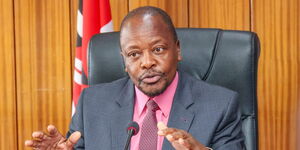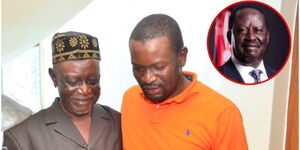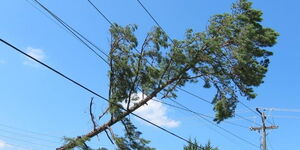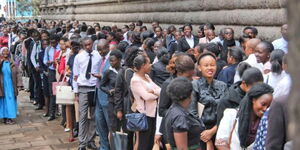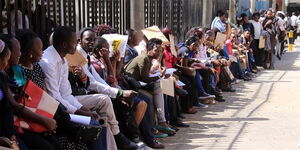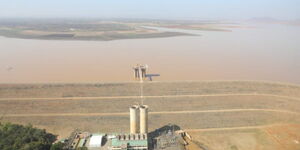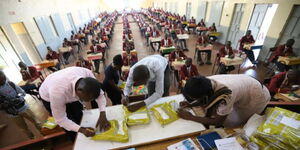Kenyan police officers in Haiti for the Multinational Security Support (MSS) have resorted to different tactics to counter the issue of gang violence which has rocked the Caribbean nation for months.
MSS Commander, Godfrey Otunge, who is leading the Kenyan contingent, revealed that a central part of the new approach was anticipating the next move by the criminal networks as they are forced out of their strongholds.
Otunge observed that while the fight against the gang in their stronghold at the capital in Port-au-Prince was still on, these gangs had a tendency to migrate to quieter, less-defended regions to regroup and at times, conquer the peaceful areas.
In a phenomenon dubbed the 'displacement of crime', Commander Otunge and his team decided to implement a strategy where they countered the gangs in dominated zones while simultaneously enforcing peaceful areas in Haiti with specialised police units.
Once you displace the gangs, then they will do what is called displacement of crime," Otunge explained. "As you push them and as the kitchen becomes hot, they look into other territories."
The main goal of deploying these specialised units, according to Otunge, is to ensure that there are capable police units in the event fleeing gang members attempt to expand their territory.
He added, "The focus is now on the quiet and the peaceful departments. We must ensure that at least we beef these areas with specialised units so that as we deal with them here, if they try to expand their territories in those particular peaceful departments, then they have the same capacity in those departments to deal with them."
Haiti has been marred by security and humanitarian crises, which dates back to as 2021 following the assasination of President Jovenel Moïse. The power vaccum that followed tempted gangs to try to take control over Port-au-Prince and surrounding regions, with the gangs often deploying brutal tactics to enforce their rule.
The armed groups are believed to control 80 per cent of the capital, with their dominance bringing Port-au-Prince's economy to a standstill.
By June 2025, more than 900 troops from several different countries had been deployed in Haiti to help avert gang violence, with the Kenyan contingent representing the majority.
The United Nations Security Council in June also unanimously voted to extend the mandate of its political mission in Haiti, affirming the importance of the office in supporting ongoing efforts to stabilise the country both politically and in terms of security.
The new mandate could pave the way for Kenyan officers to receive a boost or an extension to their deployment, which was initially set to end in October 2025. However, it remains unclear whether the mission itself will be formally extended.
Notably, the United Nations has extended its political mandate in the country until January 31, 2026 - a move seen as a signal of continued international engagement.


